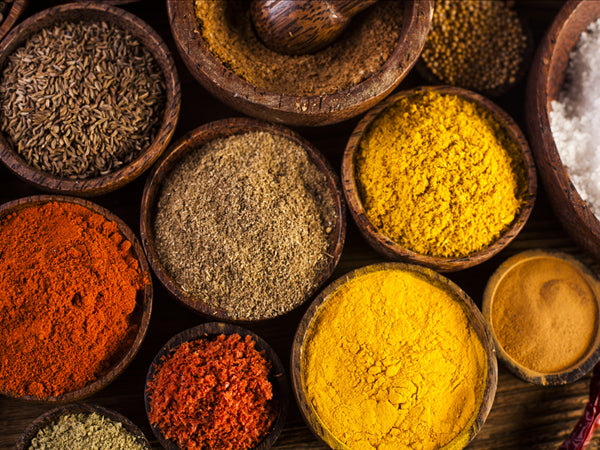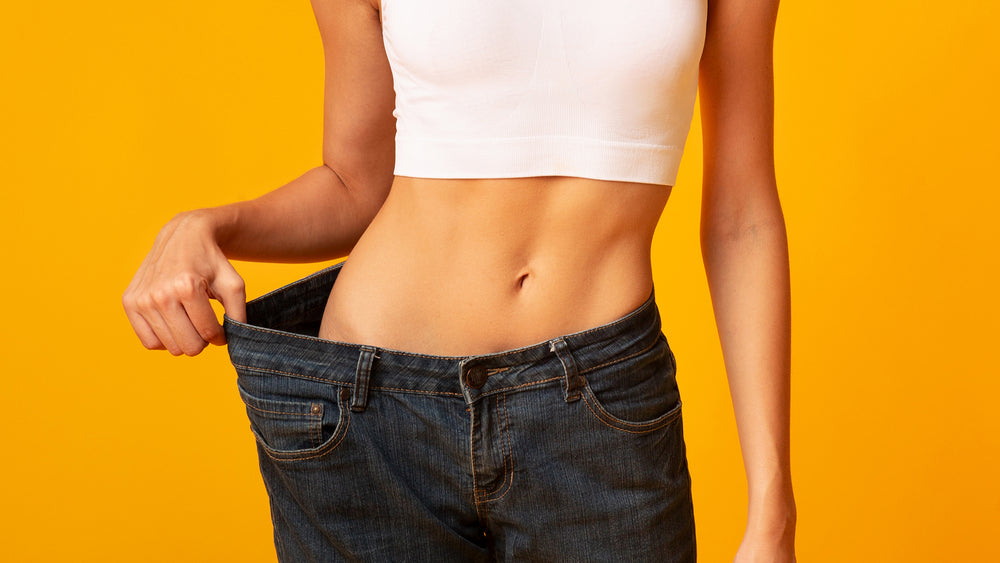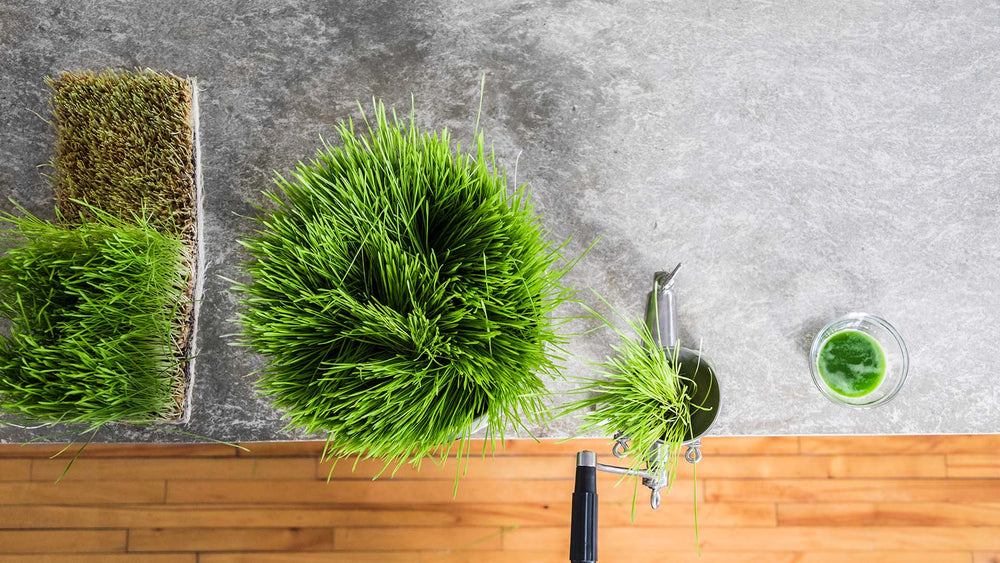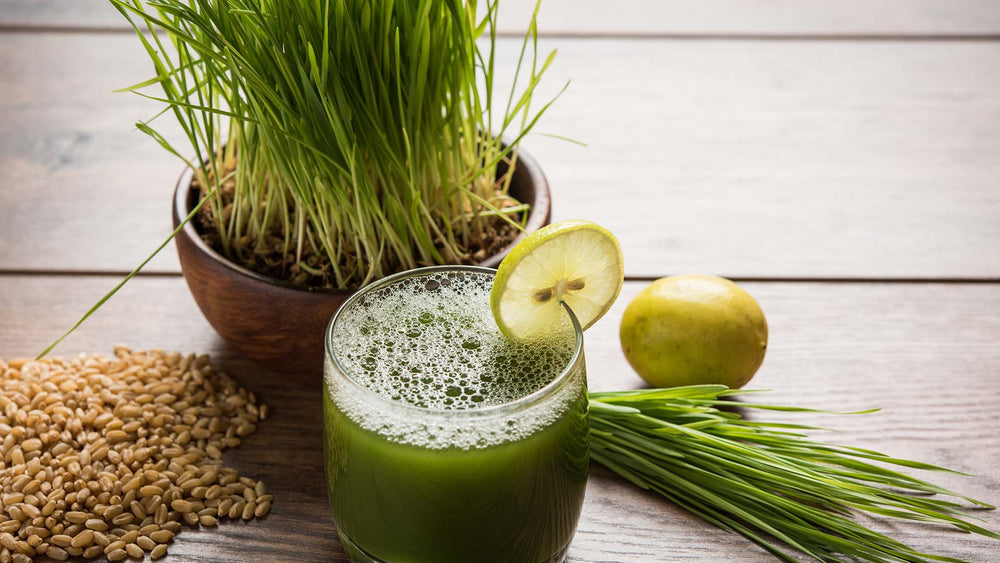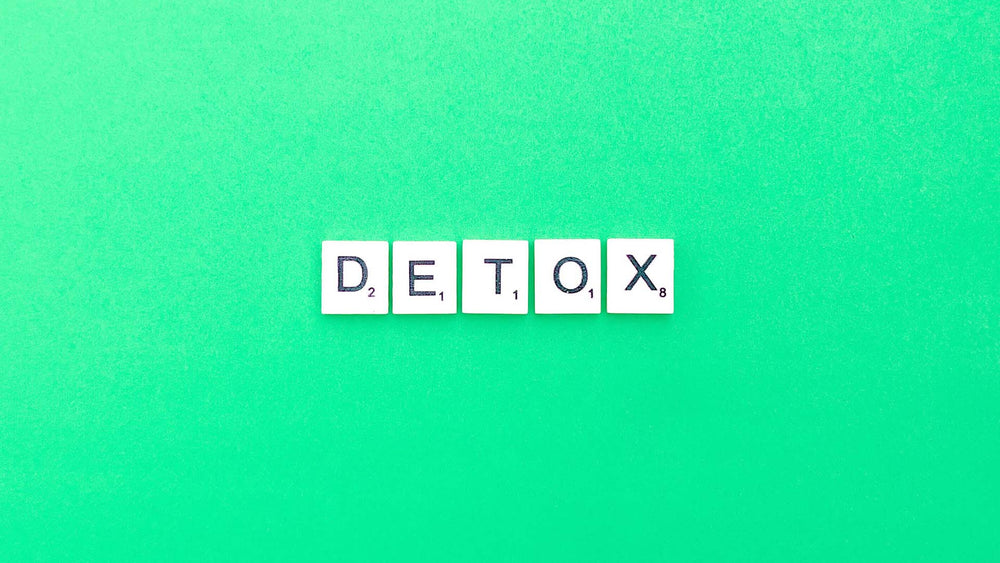With all the side effects (and the expense) of prescription antidepressants, it's no wonder more people are looking for natural alternatives to treating depression. Meditation, exercise, music therapy, herbal supplements and other non-prescription methods can improve mood if used on a regular basis. Dozens of vitamins, minerals and herbs for depression offer varying degrees of relief for mild to moderate depression or the occasional case of the blues. Check out this list of some of the best herbs for depression. We've also included vitamins and minerals essential for treating depression naturally.
Research Proves Green Tea and Green Tea Extract are Among the Best Herbs for Depression
A study conducted in Kyushu, Japan examined the effect of green tea, coffee and caffeine on depression system. It involved 537 men and women in two workplaces, and concluded that “Higher green tea consumption was associated with a lower prevalence of depressive symptoms. Compared with participants consuming ≤1 cup/d, those consuming ≥4 cups green tea/d had a 51% significantly lower prevalence odds of having depressive symptoms”.
Green tea contains L-theanine. This water soluble amino acid, also found in black tea, increases the level of the neurotransmitter dopamine and may increase serotonin (the “happiness” hormone) in the brain. Dopamine is released as a “reward” in the brain after people eat a good meal or have sex. It may also increase the amount of the acid GABA (Gamma-Amino-Butyric Acid), which reduces neuron activity in the brain. Slowed neuron activity creates a sense of calm. This makes green tea and green tea extract a good choice to treat anxiety as well as depression. L-theanine also affects the brain's Alpha Waves, giving you a sense of waking relaxation similar to that achieved during meditation. Consuming L-theanine in green tea is safe in moderate amounts of from two to seven cups a day, with ten cups considered the maximum.
A study cited by the American Journal of Clinical Nutrition showed elderly people who drank several cups of green tea had fewer depression symptoms than participants who drank a small amount of green tea, even when other factors causing depression were considered.
Ginseng
Ginseng is one of the best herbs for depression, mental and physical endurance and quality of life. All types of ginseng, including Siberian, American and Chinese (Panax) ginseng have health benefits
Used for centuries in China and Russia to prevent colds, Siberian ginseng contains eleutherosides, which may boost the immune system. It shows great promise in treating conditions related to depression and anxiety, ADHD and bipolar disorder.
Siberian ginseng can control stress, and stress and depression are often linked. It reduces stress-related activity in the adrenal cortex of the brain and helps prevent insomnia and exhaustion. Siberian ginseng has several other health benefits, including regulating blood pressure and increasing HDL (good) cholesterol. Research shows that Siberian ginseng increases social function and improved mental health in elderly people after four weeks. Its effects dissipate after eight weeks, according to the study.
American ginseng can improve mental clarity in depressed individuals and others. It contains trace minerals important for physical endurance, and may be helpful for people feeling fatigued from depression or anxiety
Chinese or Panax ginseng helps the body control depression and stress by regulating the adrenal gland. It is most effective in men 45 and older who have low hormone levels resulting in depression. Panax ginseng is a stimulant, so it should be used in small amounts by people prone to anxiety.
Gingko Biloba
This herb is taken from one of the oldest tree species, and has been used for centuries to treat many health problems, including memory problems and blood disorders. Research shows gingko biloba opens up blood vessels, improving circulation and making blood less sticky. Gingko is loaded with terpenoids and flavonoids, two antioxidants that protect you against cell-damaging free radicals. Gingko biloba is one of the most popular herbs for depression and other health problems worldwide.
Gingko biloba increases blood flow to the brain, making it an important herb for treating Alzheimer's, dementia and memory loss. It's been shown to increase social behavior and reduce depression among the elderly, and is often used to alleviate mood swings in women with PMS. When used with green tea, cayenne pepper or other herbs for depression, its mood-boosting power increases.
Cayenne Pepper
Like many other spices, cayenne pepper (capsicum) boots circulation and improves your mood. It causes your brain to release endorphins (the same hormones released when you exercise). You can add cayenne pepper to fish, poultry and other main dishes or use it to flavor popcorn. It detoxifies the body, boosts immunity and increases metabolism to help eliminate the sluggish feeling you get when you're depressed. Cayenne pepper is available in powdered and capsule form.
Fo-Ti
Known in traditional Chinese medicine as the longevity herb, fo-ti has been shown to have positive effects on stress, fatigue and depression. It's used as an anti-aging herb and may prevent premature graying and hair loss. Fo-ti increases libido for both men and women and promotes an overall sense of well-being. You can take fo-ti in capsules or as a raw herb. Pregnant women or people taking Valium, Prilosec or Prevacid shouldn't use fo-ti.
Gotu Kola
Gotu kola, a plant native to Indonesia, Japan, China and the South Pacific, is a member of the parsley family. It's not related to the cola nut, and contains no caffeine or stimulants. Gotu kola's leaves and stems are used to treat the insomnia and anxiety caused by depression. Gotu kola has triterpenoids, chemicals shown to increase mental function and reduce anxiety in mice. It's also been shown to have a sedative effect in tests on animals, and may help reduce insomnia in humans.
Damiana
Damiana, a versatile herb, is found on small shrubs in Mexico, Central America, Texas and Southern California. The native people of Mexico, including the Mayans, used damiana leaves as an aphrodisiac and sexual tonic. It's also used to relieve depression and anxiety especially when caused by sexual problems. It improves energy and sexual performance in men and women by increasing the oxygen supply to the genital area. Damiana is also a good tonic for overall well-being.
Guarana
Guarana, a shrub native to the Amazons, contains theophylline, tannins and theobromine, phytochemicals with benefits for people suffering from depression. Theobromine is a gentle stimulant also found in chocolate, cacao and some types of tea. Tannins give tea its flavor and provide a calming effect. They contain antioxidants to fight free radicals and increase immunity. Theophylline is a stimulant found in tea leaves, which is sometimes used to treat asthma and respiratory problems. One study found that guarana seed extract may have a long-term anti-depressant effect. Guarana has been shown to increase mental alertness, cognition and have fat-burning properties, according to other studies.
Vitamin D
While herbs for depression can cheer you up , so can vitamins and minerals. Lack of Vitamin D, which comes mostly from sunlight, is linked to depression. That may be one of the reasons some people suffer from seasonal affective disorder (SAD) in the winter. Vitamin D may affect the level of serotonin in your brain, since receptors from Vitamin D are found in several parts of the brain. Some theories suggest that Vitamin D affects the amount of monoamines (like serotonin) in your brain. Anti-depressant medications increase the number of monoamines in your brain and Vitamin D may do that naturally. A 2008 study in Norway indicated that people with a Vitamin D deficiency suffered from more symptoms of depression. Getting out in the sunshine and/or taking Vitamin D supplements may help improve mild to moderate, non-clinical depression.
Omega 3 Fatty Acids
While not a herb, Omega 3's are an important natural supplement to fight depression.
These polyunsaturated fatty acids consist of animal-based eicosapentaenoic acid (EPA) and docosahexaenoic acid (DHA), found mostly in fish, and plant-based alpha-linoleic acid (ALA). Low intake of Omega 3 fatty acids is connected with higher depression rates. Japan and other countries that have high fish consumption have lower rates of depression. You can get Omega 3 fatty acids in your diet from salmon, flaxseeds, walnuts, beef, sardines and cauliflower.
Animal-based sources provide 99.9% of Omega 3s health benefits. If you don't get enough Omega 3's from food, taking fish oil capsules will boost your mood and provide cardiovascular benefits. Omega 3s regulate triglycerides, guard against coronary heart disease and boost brain function to prevent memory loss and Parkinson's disease.
Studies show that the EPA in fish oil can relieve depression symptoms, especially when taken in addition to prescription antidepressants If you take warfarin, aspirin, Plavix or other blood thinners, don't take fish oil as it can increase the risk of bleeding.
Use Omega 3's, along with herbs for depression to increase happiness, energy and heart health.
Vitamin B12 (Cobalamin)
Vitamin B12 and other B-complex vitamins produce brain chemicals necessary for a balanced mood and mental clarity. A low level of Vitamin B12 may cause depression and other health problems, including shortness of breath, joint pain and memory loss. Vitamin B12, also called cobalamin, has been studied as a possible natural treatment for depression along with Vitamin B9 (folate) by the MRC Neuropsychiatric Research Laboratory in Surrey, UK. The researchers concluded “On the basis of current data, we suggest that oral doses of both folic acid (800 microg daily) and vitamin B12 (1 mg daily) should be tried to improve treatment outcome in depression.”
Vitamin B6 (Pyridoxine)
One of eight B-complex vitamins, Vitamin B6 may help relieve depression associated with premenstrual syndrome (PMS). A study conducted in Denmark suggested that Vitamin B6 deficiency may cause depression in some people, but further research is needed. When you don't have enough Vitamin B6, you may also suffer from muscle weakness, irritability, short-term memory loss or difficulty concentrating. Turkey, chicken, lentils, brown rice, sunflower seeds, shrimp and milk are just a few of the foods containing Vitamin B6. You can get more Vitamin B6 by replacing processed foods with homemade meals and taking a wheatgrass supplement with added B-complex vitamins, including Vitamin B6. Wheatgrass contains hundreds of vitamins, minerals and enzymes to keep you healthy and may prevent the nutrient imbalances that cause mild to moderate, depression
Magnesium
Essential for serotonin production, magnesium is one of the nutrients most Americans don't get enough of from their diets. Recent studies show 68% of U.S. adults don't get enough magnesium, and this may be one of the reasons for the increase in depression, anxiety and anorexia in the U.S. (Magnesium deficiency can also cause muscle spasms and hypertension.) Research by the Medical University of Lublin in Lublin, Poland, states that magnesium deficiency was apparent in psychiatric and neuromuscular symptoms, including some types of depression.
When used along with herbs for depression, magnesium helps keep your brain function stable. Magnesium is responsible for cofactoring in over 300 enzyme systems and the resulting biochemical functions in the body. It helps produce energy and keep muscles strong. Most people don't get enough magnesium in their diet. Magnesium-rich foods include peanut butter, black beans, spinach, cashews, yogurt and salmon. For people who need a supplement to get enough magnesium, a wheatgrass tablet or wheatgrass juice will provide you with an ample amount of magnesium through its high chlorophyll content. Chlorophyll has dozens of other health benefits. It flushes out toxins from your body, tones your intestinal and stomach muscles, improves digestion and increases your mental focus and concentration.
Zeal O2, REVV and HappyGirl from LifeForce Nutraceuticals Contain a Blend of Herbs for Depression
The wheatgrass in Happy Girl Mood Enhancement Supplement is filled with amino acids, vitamins, minerals and enzymes to increase your sense of well-being. Its' magnesium and B-complex vitamins help neutralize mood swings while giving you more energy. The proprietary blend of herbs for depression adds to this supplement's natural depression-busting formula. Green tea extract, guarana, gotu kola, fo-ti and ginseng are just a few of the mood-boosting herbs in Happy Girl. Great for men, women and seniors, Happy Girl can be used for occasional mild to moderate, non-clinical depression. Order Happy Girl here.
Zeal O2 Natural Weight Loss Supplement and Energy Booster helps you stay healthy and lose weight the natural way. Formulated with wheatgrass and a blend of herbs for depression and energy, this powerful wheatgrass tablet does more than suppress appetite. Zeal O2's proprietary blend of herbs includes citrus aurantium (to burn fat), plus green tea extract, cayenne pepper, damiana, gotu kola, fo-ti and other natural remedies for depression, fatigue and anxiety. Order Zeal O2 here.
REVV Natural Energy Supplement is made with wheatgrass and B-complex vitamins to naturally boost energy. Theses chocolate mint wafers taste great and the cocoa used in REVV does more than give it flavor. The phytochemicals in cocoa, including flavonoids and catechins, fight free radicals to keep you healthy and boost energy. The combination of Vitamins B12, B6, folate and magnesium in REVV's high-value wheatgrass help to balance your mood and protect you against depression. Order REVV here.
Zeal O2, HappyGirl and REVV come with a money-back guarantee. If you're not satisfied return the unused portions for a complete refund. Always talk to your doctor before taking any dietary supplement.

